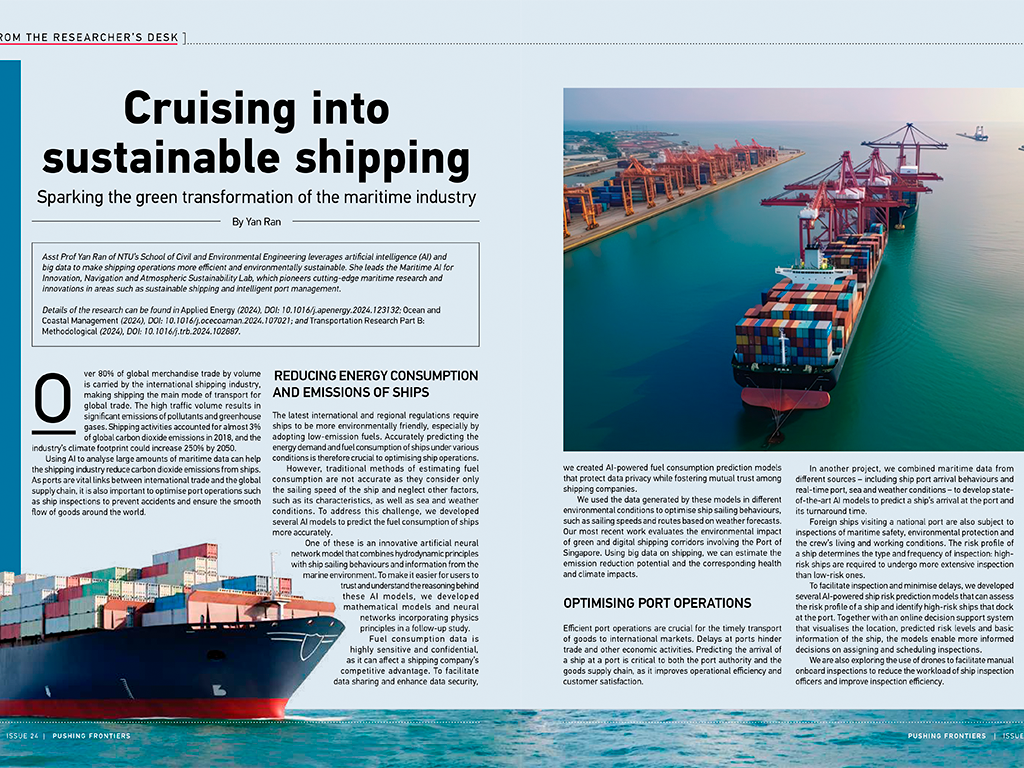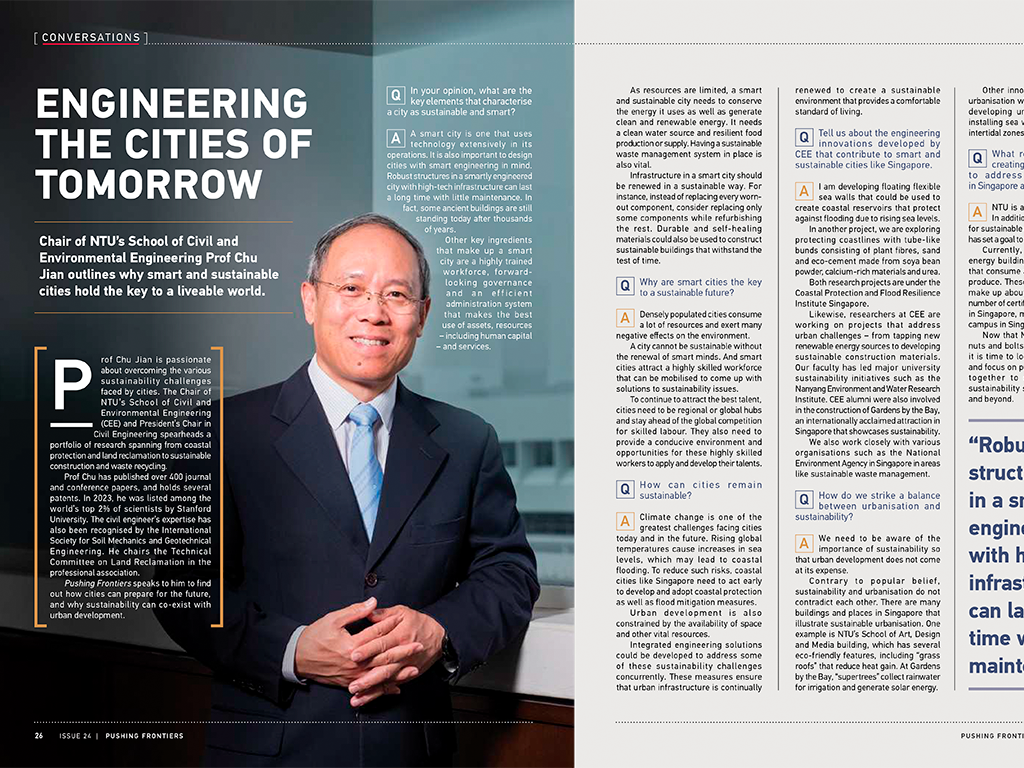CEE Research featured in Pushing Frontiers Issue 24

Pushing Frontiers is NTU's reseach and innovation magazine that provides a window into the university's latest research achievements, focus and perspectives across various scientific disciplines.
The School of Civil and Environmental Engineering have several research achievements being featured in Issue 24.
Feature #1 - Reducing Carbon Emissions From Waste Disposal
Incinerating solid waste is an important waste management strategy which reduce the amount of non-recyclable solid waste but it produces carbon dioxide that contribute to greenhouse gas emission and climate change. To counter this, calcium looping is used to minimise the carbon dioxide emissions, but it is energy-intensive and expensive.
Associate Professor Grzegorz Lisak and his team of researchers has discovered using fuels produced from recovered waste for heating was the most economical and that leveraging waste-derived calcium sources, such as incineration ash can further reduce the overall cost of this technology.
Feature #2 - Long-lasting Concrete Structures
Associate Professor Yang En-Hua has developed a bendable metal-like concrete that is less prone to sudden breaks and can potentially enhance the safety of buildings and infrastructure while reducing their lifecycle cost and carbon footprint.
He also formulated a self-healing cement additive that could strengthen the durability of concrete used in critical infrastructure.

Feature #3 - Fortified From Land to Sea
Land and resource limitations are becoming more prevalent as the global population expands. The school's Centre for Urban Solutions (CUS) seeks to address urban development challengs by integrating digitial technologies, such as artificial intelligence (AI) into urban planning and construction.
In land-scarce cities, space is being created upwards with high-rise buildings and downwards developments. With a spate of devastating sinkhole incidents that have occured worldwide during construction projects, Associate Professor Wu Wei has pioneered a digital solution with his team to manage the unpredictable underground as methods powered by AI to precisely map underground structures like cavities or boulders, employing machine learning to detect anomalies autonomously.
Similarly, Assistant Professor Shi Chao turned to transformative digital solutions for underground and coastal engineering. His research team uses algorithms and digital twins - virtual models that simulate subsurface conditions - to optimise the construction of underground infrastructure.
Professor Chu Jian, Chair of the School and Director of CUS, is leading two research projects under the Coastal Protection and Flood Resilience Institue Singapore to mitigate the imminent threat of rising sea levels for cities with low-lying coastlines.

Feature #4 - Cruising into sustainable shipping
Leveraging on artificial intelligence (AI) and big data, Assitant Professor Yan Ran leades the Maritime AI for Innovation, Navigation and Atmospheric Systainability Lab to make shipping operations more efficient and environmentally sustainable with research projects - Optimising Port Operations and Reducing Energy Consumption and Emissions of Ships.

Feature #5 - Engineering the Cities of Tomorrow
Professor Chu Jian, Chair of the School was interviewed as he outlines why smart and sustainable cities hold the key to a liveable world.














/enri-thumbnails/careeropportunities1f0caf1c-a12d-479c-be7c-3c04e085c617.tmb-mega-menu.jpg?Culture=en&sfvrsn=d7261e3b_1)

/cradle-thumbnails/research-capabilities1516d0ba63aa44f0b4ee77a8c05263b2.tmb-mega-menu.jpg?Culture=en&sfvrsn=1bc94f8_1)






